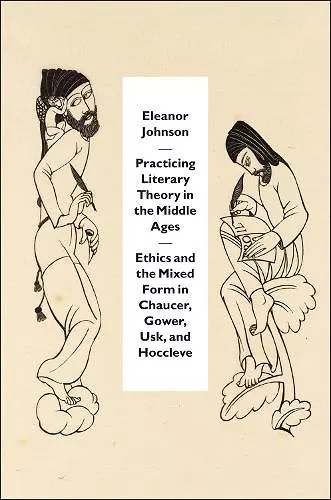Practicing Literary Theory in the Middle Ages
Ethics and the Mixed Form in Chaucer, Gower, Usk, and Hoccleve
Format:Paperback
Publisher:The University of Chicago Press
Published:5th Jan '18
Currently unavailable, and unfortunately no date known when it will be back

Eleanor Johnson's Practicing Literary Theory in the Middle Ages reveals the deep connections between aesthetics and ethics in medieval literature.
In Practicing Literary Theory in the Middle Ages, Eleanor Johnson explores the often-overlooked relationship between aesthetics and ethics in medieval literature. Literary scholars frequently shy away from discussing aesthetic elements, fearing that such considerations might dilute the sociopolitical significance of a work. However, Johnson argues that the formal characteristics of literary language are deeply intertwined with ethical implications, particularly in the context of medieval texts. She emphasizes that understanding these connections can enrich our comprehension of the literature from this period.
Johnson's analysis focuses on the prosimetric form, which blends prose and lyrical poetry, tracing its origins back to the influential sixth-century philosopher Boethius. His seminal work, Consolation of Philosophy, not only shaped the thematic and philosophical landscape of subsequent literature but also impacted the aesthetic frameworks within various vernacular traditions. By examining this lineage, Johnson highlights how Boethius's ideas resonate throughout medieval writing, illustrating the continuity of thought across centuries.
Through her examination of key Middle English texts, including Chaucer's Troilus and Criseyde and The Canterbury Tales, as well as works by Thomas Usk, John Gower, and Thomas Hoccleve, Johnson reveals the intricate prosimetric structures at play. She investigates how specific formal choices reflect medieval literary theories and mediate ethical transformation for readers, ultimately asserting that aesthetics cannot be separated from the ethical dimensions of literature in this rich historical context.
ISBN: 9780226527451
Dimensions: 23mm x 16mm x 1mm
Weight: 397g
264 pages